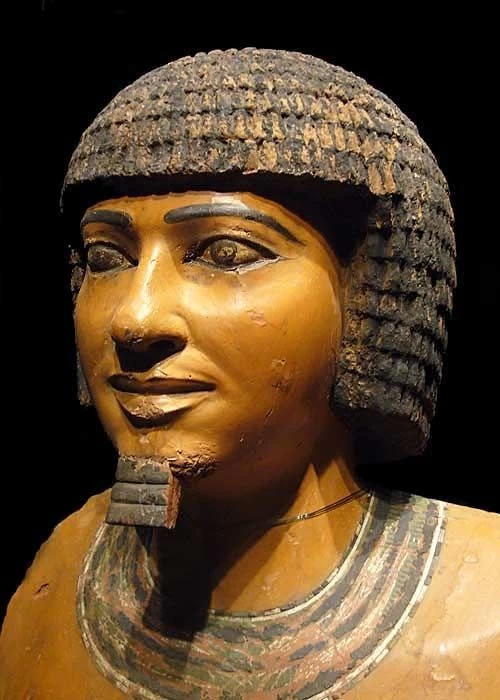
Imhetop, The First Architect
The Founder of Architecture
Knowledge worker across multiple disciplines and chief priest; Imhotep. (2630-2611 B.C.) was the king of Djoser under whom Imhotep lived. The Saqqarah pyramid, the first pyramid ever constructed in Egypt, was designed by him. Although he was a commoner at birth, Imhotep became a vizier and high priest through his rapid rise to power within religious and political circles.
In this context, he served as an architect, a scribe, a priest and a doctor for the Pharaoh’s court. Additionally, he created the first pyramids and got worshipped as a god while still alive. As the High Priest of Ra, Imhotep is the head of the clergy of all Lower Egypt. This period is the rise of the city of Heliopolis in the Egyptian cult, to the detriment of Memphis.
Imhotep is also the instigator of the Osirian reform, which marks the appearance of Isis and Osiris as well as a cycle of eternal life in the Egyptian religion. Imhotep’s death occurred around 2595 BC and follows that of Djoser by a few years. While there is no doubt that a person of his stature has received a tomb, this remains undiscovered to date.
Imhotep’s story does not end with his death. A century later, he is elevated to the rank of Demi-god, protector of scribes and doctors. From there, its importance continues to grow: it is considered as the son of Ptah, the god of construction, before also associating him with Thoth, the god of knowledge. The worship of Imhotep becomes so important that he finally reaches the rank of full-fledged deity.
Soon, the worship of Imhotep is no longer limited to his homeland: its faithful can be found in Greece, where he is equated with the god of medicine, Aesculapius, and in the Roman Empire, where he is venerated directly. His influence is such that the first Christians themselves associated him with Jesus, considering that he was one with Christ!
The cult of Imhotep resists, so much as badly, the rise of monotheism. It eventually disappeared under the pressure of the Arab conquests in the seventh century.














